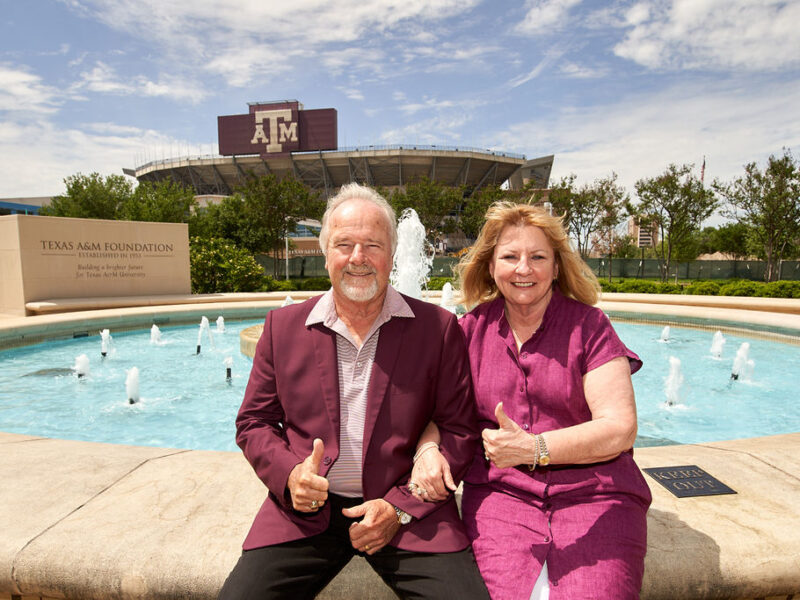Texas A&M System Partners With JED Campus To Support Student Mental Health

The Texas A&M University System is launching a multi-year effort to assess existing mental health services across its campuses and identify opportunities for improvement through a new partnership with The Jed Foundation, a nonprofit dedicated to supporting and protecting the mental health of young adults.
Over the next four years, the flagship campus and other System schools will receive guidance on comprehensive systems, programs and policy development that build on existing student mental health, substance use and suicide prevention efforts through JED Campus, the foundation’s signature program. As part of the collaboration, Texas A&M will participate in the Healthy Minds Study. A random selection of students, faculty and staff will be surveyed to help provide an understanding of the university community’s attitudes, awareness and experiences related to mental health.
More than 400 universities have engaged in the JED Campus initiative.
“JED Campus is an investment in the mental health and well-being of Texas A&M University,” said Dr. Nancy Fahrenwald, associate vice president for University Health Services. “It’s a four-year commitment to take a look at the data, policies and programming practices that support mental health, suicide prevention and an overall community of wellness. It takes a lot of time to do that work, and I’m so pleased that Texas A&M has agreed to do it.”
President Mark A. Welsh III said the university hopes to create an environment where asking for help with mental health concerns is not only accepted, but encouraged.
“We want our students to understand that taking care of their mental health is not a sign of weakness, but rather an act of strength,” Welsh said. “Whether you are struggling with anxiety, depression, stress or any other mental health issue, know you’re not alone and help is within reach. We have to prioritize our mental health just as we do our physical health.”
Fahrenwald said a baseline assessment of existing policies, trainings and other resources has been completed. Next, the Healthy Minds Study will provide a more detailed picture of student and employee mental health, service utilization and other issues. She said about 12,000 Texas A&M students — and all students at the Galveston campus — will receive emails about the survey when it launches April 2. All benefits-eligible faculty and staff members at the flagship and Galveston campuses will also be invited to participate.
The confidential information collected from the study, which is administered by the University of Michigan, will provide important insight into the day-to-day experiences of students and employees.
“We hope there’s an overwhelming response to the survey because we know Aggies want to support each other, and their input will be valuable to the whole community,” Fahrenwald said.
The JED Campus initiative is led by an executive steering committee with representation from University Health Services, the Office of the Provost, the Division of Student Affairs and the Galveston campus:
- Co-Chair Dr. Nancy Fahrenwald, Associate Vice President for University Health Services
- Co-Chair Dr. Tim Scott, Vice Provost for Academic Affairs
- Co-Chair Dr. Justin Jeffery, Assistant Vice President for Student Affairs
- Alicia Dorsey, Associate Vice President for Academic Effectiveness and Planning
- Joe Hoff, Director of Recreational Sports, Texas A&M University at Galveston
A larger steering committee will be appointed to determine priorities for the strategic planning component of the program.
The Jed Foundation is leading the nation in youth mental health and suicide prevention efforts, Fahrenwald said. The nonprofit was created by parents who lost their son, Jed, to suicide in 1998. The JED Campus program helps colleges and universities assess needs and identify opportunities for new tools that lead to measurable improvements in student mental health.
“Sometimes it takes the lens of someone who doesn’t live in our world to see the things we can’t see,” Fahrenwald said of the advantages of the partnership. “We sometimes don’t realize there may be a better way to do things. There’s also a community component to the JED Campus program where we’ll be part of a learning community with universities across the country. We can tap each other for ideas and opportunities for improvement.”
The JED Campus program and Healthy Minds Study are the latest in a series of efforts by Texas A&M to support students’ mental health. Last fall, the university launched its “No Aggie Stands Alone” campaign, a call to action drawing on the 12th Man tradition for Aggies to stand united to support one another in prioritizing mental health.
To learn more about resources available to students and employees, visit mentalhealth.tamu.edu.



